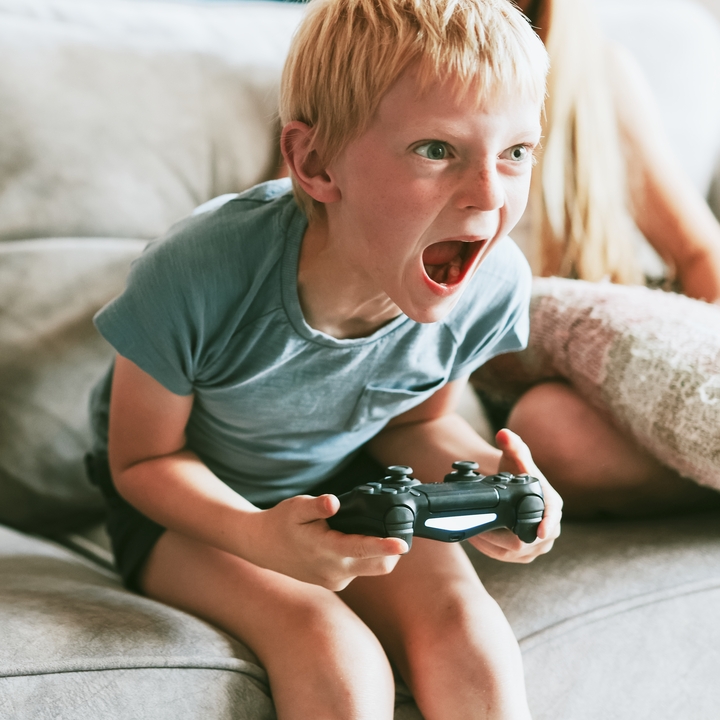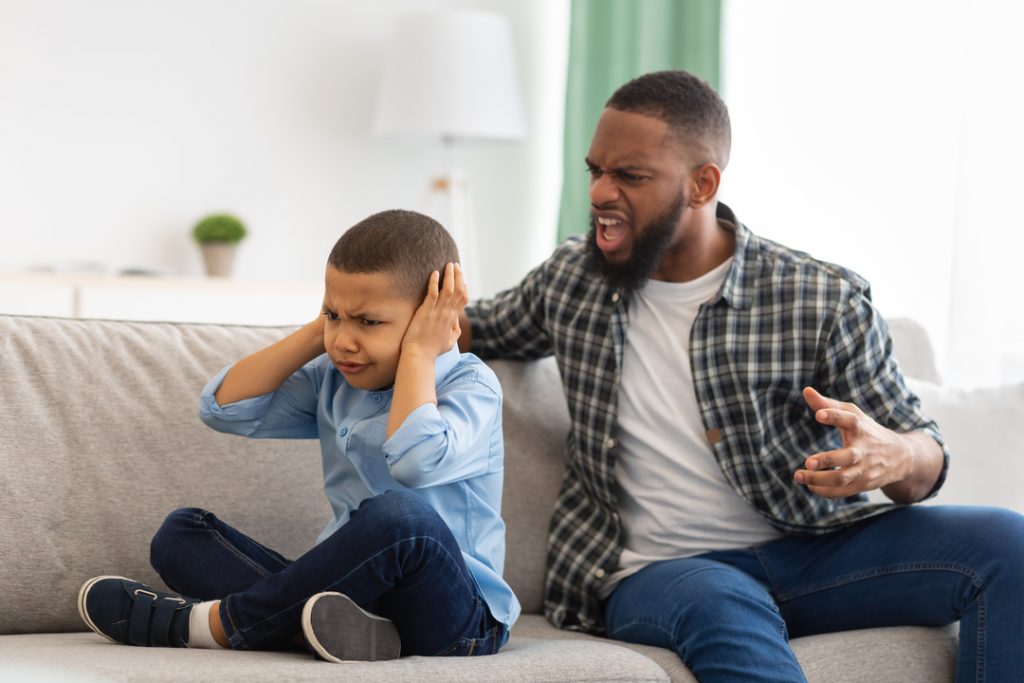Parenting is a sweet, joyous experience. It can be very rewarding and can fulfill your soul from within. It can offer you the solace you need at times, but if you are a parent, you would know that it isn’t all rainbows and unicorns. Dealing with children can be quite difficult, can’t it?
No matter how hard you try to stay calm, there has to be at least one instance where you must have lost your cool and yelled at your kids. Sometimes, it doesn’t necessarily have to be a wicked thing that the kids did, like losing something valuable or shattering the window while playing cricket inside the house despite your repeated warnings.
It can simply be something that is just enough to set your temper off, enough to trigger you on a particularly tiring, horrible day at work. Sometimes, it may not be anything that they did, but a dispute that you had with your spouse or a close relative that can cause your anger to flare up. Whatever the cause, the likely result is the lasting imprint that your aggression can leave on your children.
Even if you do not direct your acts of aggression – both verbal (insults, invectives, name-calling) and physical (shoving, hitting) – towards your children, it impacts them.
The worst thing about exposing your kids to such anger and abuse regularly is how it doesn’t just affect their perspective. It doesn’t just affect the way they look at things and their perception of security and trust but can have enduring influences on their very makeup and disposition.
What are some enduring effects of exposing your children to excessive aggression?

1. Children can learn aggression from you
Remember that your children are always on the lookout for learning new things. Learning vicariously is a particularly important mode of learning that is predominantly resorted to in children.
They learn from the people and things that they see around them. In other words, they view the individuals surrounding them as models and try to emulate their behavior. This should act as a reminder when we are around children, to remind us to make sure our actions are kept in check.
This is also where the problem with exposing children to excessive aggression comes in. When children are exposed to excessive anger and abuse, they start to normalize these behaviors.
They start looking at aggressive actions as a normal response to other individuals. They learn aggression and learn to incorporate it. As a result, your children may go on to exhibit abusive behavior themselves, perpetuating the cycle of abuse in the family, across generations.
2. The trauma that they experience can leave them disturbed
Research indicates that children who have been exposed to excessive anger and aggression undergo the same experience and exhibit symptoms similar to those who have been the victims of abuse themselves.
In some extreme cases, this may even lead to the development of symptoms that are characteristic of Post-Traumatic Stress Disorder. It is possible that these children go on to experience the emotional aftershock for months after even one incident. Imagine then, how long the effects of regular abuse can last. It can leave them disturbed, and dysfunctional.
3. Emotional abuse can have radical implications on the self-image of your children
Exposing your children to incisive emotional abuse, like abusive insults, name-calling, invectives, etc. even when not directed at them can have implications on their perception of the self. It can constantly modify their self-image, from better to worse.
Children look up to you, as figures of authority and when you target insults at them, it is very likely that they take this to heart and incorporate this.
Emotional abuse from parents, especially, can shatter their self-confidence. Their self-esteem also takes a blow, being affected negatively. They start feeling increasingly insecure and it can leave them feeling lost and deranged. Along with their self-esteem, their sense of self-worth can be damaged too. As a result, they will end up struggling with having a healthy sense of respect for themselves.
4. Your children may struggle with relationships later in life
As adults, children who have been exposed to abuse may find it very difficult to establish and sustain relationships with other individuals. They struggle with healthy emotional expression and being empathetic, and this can cause them to have issues with attachment and commitment.
This leaves them inept at having meaningful relationships and affects the course of any existing relationship. They find it difficult and may fail to establish healthy boundaries when in a relationship, leading to its downfall.
5. Exposure to aggression can lead to adjustment issues
Research has established a strong association between exposure to aggression and delinquency in children. Children exposed to abusive behavior are more vulnerable to committing delinquent acts and are likely to be aggressive themselves.
Children who experienced harsher behavior at home and less parental warmth are prone to have antisocial tendencies. They may be noncompliant and exhibit overall poor adjustment.
How can you deal with this to prevent this?
It is difficult to get a hold of yourself when you’re angry and prevent yourself from lashing out, especially in front of your children. It is difficult, but it isn’t impossible. Here are some techniques for you to try, to control your anger, and avoid exposing your children to excessive anger and abuse.
1. Try to avoid interactions with your children when you are angry
When you can sense your anger flaring up, or building up to a point where you may see it getting out of your hand, try and move away from that situation. Think of it as giving yourself a break or a time out, to give yourself the time and space to recoup. Try your best to isolate yourself from your children, and avoid interactions with them when you are angry.
Give yourself this break and come back to address the situation when you have calmed down and when you are at your best composure. Take a few deep breaths and judge yourself, assess if you have mastered your anger, let it pass seamlessly, and then bring yourself back to the situation.
2. Don’t teach them to fear you
Try not to make the mistake of teaching your children to fear you. When you actively expose them to your anger, you work towards instilling this fear in them. This should not be the ideal goal, as your aim has to be to establish a relationship with your children that is based on trust and responsibility and not fear.
Teach them to learn to take responsibility for their actions. Teach them that their actions will have consequences that they will have to deal with. Remember this when you feel like resorting to anger in trying to discipline them.
Remember that saying something louder, doesn’t necessarily mean it is the right thing. Try to recall this and divert your course of action.
3. Cast your conflict with your spouse, aside
In most cases, your anger may be a result of a conflict or a dispute that has evolved between you and your spouse. But remember that when dealing with your children, any difference that may be dividing the two of you needs to be cast aside. You and your spouse will have to work as a team, in dealing with the situation, in case it has gotten out of hand.
So at least, for that moment, remember that the well-being of your child is of the utmost importance. Try to look beyond just the dispute. Take a break from the argument and let things settle down, before you arrive at a consensus and deal with your children.
If you find it difficult to arrive at a consensus, try reaching out to a professional for help. Couples therapy is an increasingly popular option among couples going through a rough patch. This can help in reducing the instances of aggressive outbursts in the long run.
4. Engage in a peaceful activity regularly
Another technique, that is especially suited for the long run, is to take up peaceful activities or hobbies like yoga and meditation. Yoga and meditation are both well known for promoting a sense of well-being. It has the power to establish tranquility within you.
Try spending a fixed period of your day, every day, practicing yoga or meditation activities. If you feel that starting this activity may be intimidating, try using apps that guide you through the process, to help you navigate your journey easily.
If you don’t think yoga is your cup of tea, try spending some time doing any activity that both you and your partner enjoy. Something that can bring the both of you closer together.
Conclusion
When dealing with a situation as such, where you find yourself to be at crossroads with your spouse and at a point where there is a very real possibility that you may expose your children to some serious aggression, make it a point to take a step back and relax.
Try to remember that it is the wellness of your child that has to be given priority. Whatever the dispute, can perhaps wait.
Sometimes things may get completely out of hand and you may end up lashing out. But then, instead of feeling helpless about it, think of what you can do after. Talk to your children directly, be empathetic and try to look at things from their point of view. Do not hesitate to offer them reassurance profusely, for they will need it.
Remind them that you love them and tell them that for them you can work on your anger. Tell them this and show them this. Remember, you make mistakes too but it is never too late to try and set things right.
Related Article: The 4 Parenting Styles





